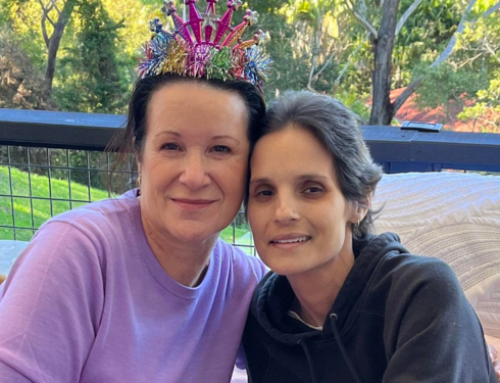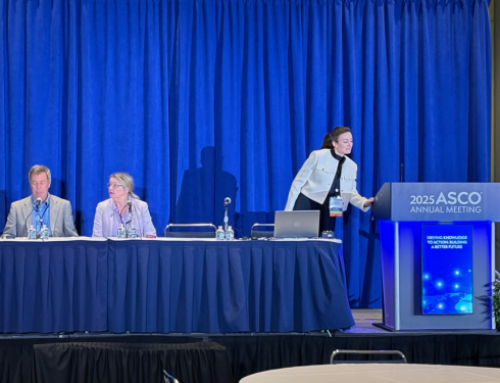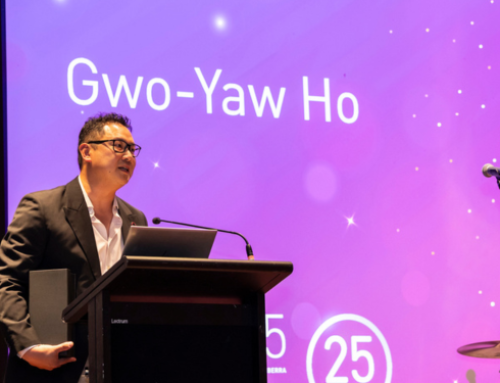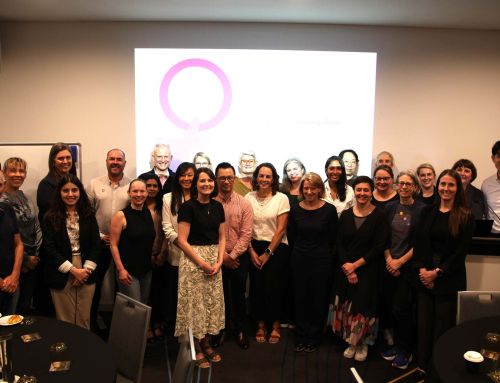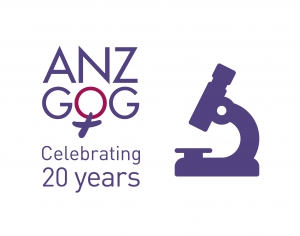
To celebrate #GynaecologicalCancerAwarenessMonth and ANZGOG’s 20th year anniversary, Professor Michael Quinn AM tells us the story of ANZGOG’s beginnings, his fundraising highlights, and shares his advice to young gynaecological cancer researchers…
As a founding member, what were your hopes and dreams for ANZGOG?
It was becoming clear by the 1990s that women who were on clinical trials had better outcomes than those who did not have access. Originally, the gynaecological group of COSA was active but this all fell away especially after ASGO got up and running so there was a clear need for a new multidisciplinary group. The aim was to ensure that everyone interested in the care of women with gynaecological cancer had the opportunity to join. Our vision was simple; have every State represented and become relevant nationally and internationally.
What are some of your fondest memories from the early ANZGOG ASMs?
Like all new organisations we made plenty of mistakes but our major thrust was to be as inclusive as possible. We also had to have a ‘home’ for our group and Michael Friedlander negotiated that we would become a subsidiary of the GOG in the US. This allowed us to be a satellite member and we were able to structure ourselves based on the much more experienced and indeed, at that time, world-leading trials group.
Marg Davy hosted our first planning meeting in Adelaide with Michael and Danny Rischin providing much wisdom and experience. We learned then of the importance of co-operative clinical trials groups and when we approached GCIG they were very generous in giving such a fledgling organisation a seat at the table.
Our ASMs (Annual Scientific Meetings) were great from the start. We were able to invite smart international guests and we concentrated on existing trials and trial designs. We invoked the help of our lab colleagues from the word go. Above all we managed to run our meetings with structured informality and with the unusual tradition of allowing and indeed encouraging a little heckling from the floor. Our international visitors loved this I think above all else and we soon became known for this and for our (usually raucous) social events.
You have raised over $5 million for gynaecological cancer research and $3million for the Royal Women’s Hospital cancer unit, what prompted you to get involved with fundraising?
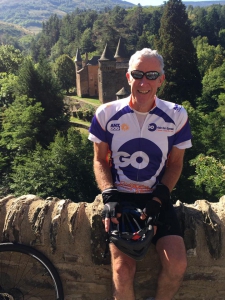
Prof Quinn raised over $1 million for Go for Gynae, ANZGOG’s former fundraising brand
I was always very interested in a holistic approach to patient care and set up the first multidisciplinary group at the Peter MacCallum Cancer Centre when I got back from training in Canada in 1983. When I was appointed to the Women’s in Melbourne the unit there had one shower and one toilet for 22 patients, there was nowhere private to speak with women and their families and palliative care was just being recognised as a speciality…
I went to the State government and a very supportive Minister for Health, Marie Tehan, said that if I managed to raise $1.5 million dollars she would match this sum. And so, ‘Sponsaprof’ was born. We had a wonderful community and hospital staffed committee and I and others managed to raise the money. I really felt we had to show that we were willing to do the hard yards (literally and figuratively) by showing that we were committed. Three years and seven marathons later we had a stand-alone unit with single rooms with ensuites, a double room to accommodate partners (used especially for dying patients and their families), a laundry and a meditation room. All next door to our outpatients, our colposcopy clinic and our chemo room. To this day I think it is the perfect example of an ideal cancer unit.
Pari passu the need for increased research funds was obvious so I started The Women’s Cancer Foundation which eventually became part of ANZGOG!
What has been the highlight for you in your fundraising endeavours?
I think that the amazing help from the community plus the extraordinary commitment of my patients was what kept me going time and again. You can’t feel sorry for yourself in the middle of a marathon or a long bike ride or halfway up a mountain if you just think about the challenges women and their families face. There is no comparison.
From your experience as the Chair of the Gyneacological Cancer Intergroup, how do you think ANZGOG is perceived on the world stage of gynaecological cancer research?
We have gone from the new kids on the block to world leaders basically by accessing funds and trial design expertise (and here a big thank you to Cancer Australia and the NHMRC Clinical Trials Centre), by being inclusive, mentoring as we have gone, by being fortunate in having so many incredibly bright and committed researchers, and by structuring our working groups on the GCIG model. We are also noted as the most social trials group globally!
What is your best piece of advice to the younger gynaecological cancer researchers in Australia?
Academic rigour is paramount so ensure the integrity of your data and look to your seniors for guidance and help. For the clinical researcher, make sure you get a great research nurse…. worth their weight in gold! Just like a great data manager!
Throughout your career as a Gynaecological Oncologist clinical research has always been important. Why have you been so passionate about it?
How can we sit on our hands and accept we can do no better for our patients? The only way to improve outcomes is by challenging the status quo and by thinking of new ways to get answers more quickly. The co-operative approach is probably been the biggest game-changer in my life.
What have you seen as the main benefit for patients participating in clinical trials?
I really believe that our patients by and large love to be involved. The altruism associated with consenting to a trial is extraordinary and I think we at ANZGOG always recognised this.
Why is it important for consumers [cancer patients and survivors] to participate in research?
ANZGOG has I think been a leader in recognising the importance and value of consumers to the development and running of clinical trials. It really is a no brainer. Good for the consumers who have helped us so much, good for the patients and their families and good for the community.
You are retired, do you hope to continue being involved in gynaecological cancer research and if so, how?
I am absolutely committed to succession and ensuring that those coming behind are well supported and guided. But I am equally committed to the notion that when your time is up, it is up. For all of us, knowing that best time to step back is very difficult and there is no magic formula. I have been very lucky to have been very active with IGCS for the last six years since I retired. But it is now time to walk away. But with absolutely no regrets.
Tell us what you are up to in your retirement?
Now that would be telling! COVID-19 has obviously changed everything. But still, lots to do (research on Antarctic explorers, especially the Scottish influence, a priority!).
#20yearsofresearch
ANZGOG would like to thank Professor Quinn for kindly taking the time to share his thoughts and memories with ANZGOG.
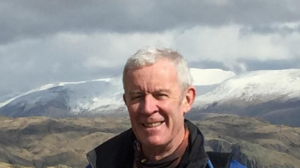
Prof Quinn is the Immediate Past President of the International Gynaecologic Cancer Society (IGCS)
Michael Quinn was a Professor at the Department of Obstetrics and Gynaecology, University of Melbourne and a consultant at the Oncology/Dysplasia Unit, Royal Women’s Hospital. He has authored several textbooks, book chapters and has over 300 refereed publications. Professor Quinn is a former Chair of ANZGOG and the Gynecologic Cancer Intergroup and was appointed Co-Chair of the Oncology Committee of FIGO in March 2011. He is also the Immediate Past President of the International Gynecologic Cancer Society (IGCS).
Michael was awarded a Member (AM) in the General Division of the Order of Australia in 2015 for his significant service to medicine in the field of gynaecological oncology through executive roles at state, national and international levels.
Since our beginning in 2000, ANZGOG has conducted 37 clinical trial studies, with close to 4000 patients participating in these trials.
ANZGOG currently has 13 open trials. To find out more, please visit our trials page.
